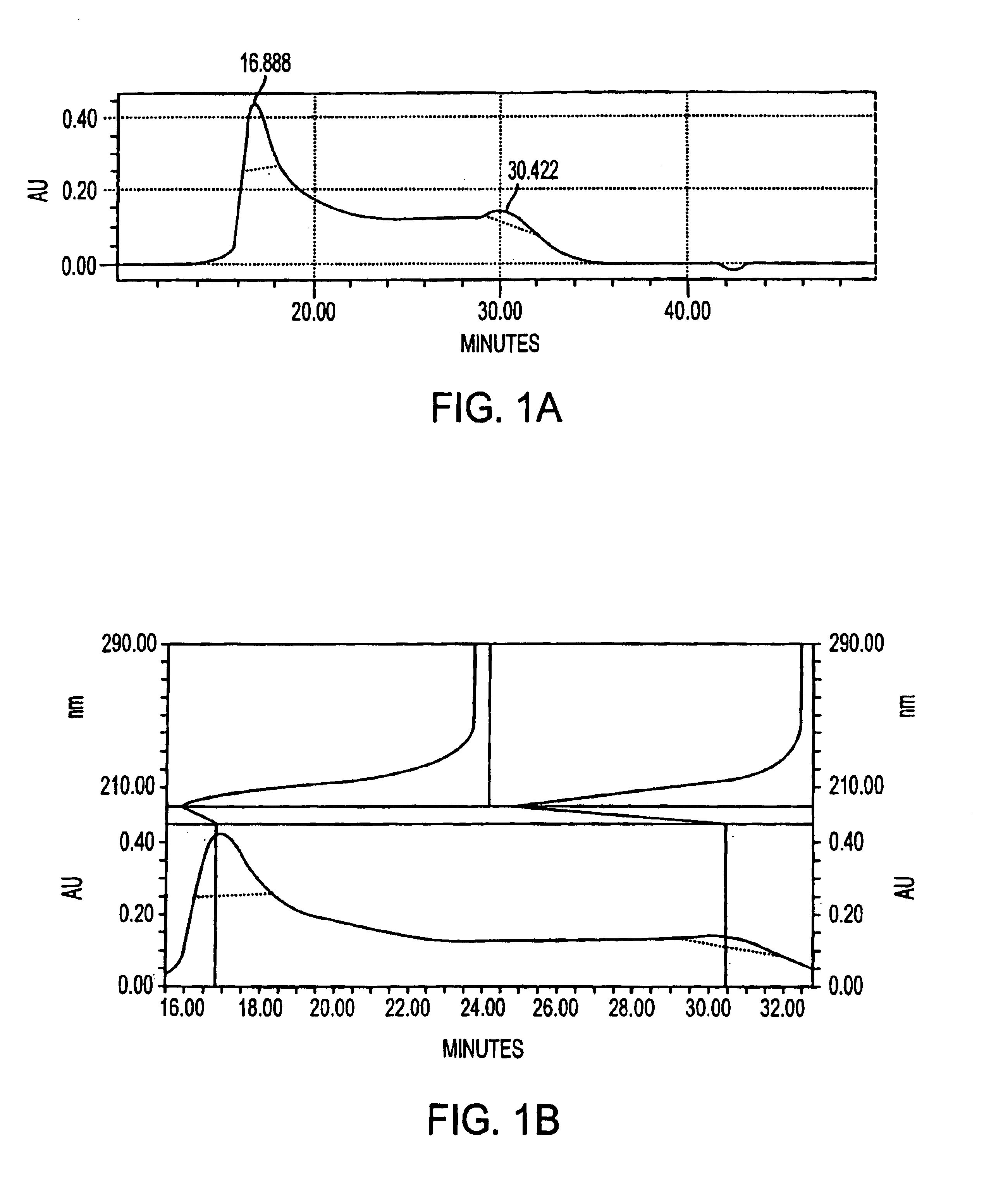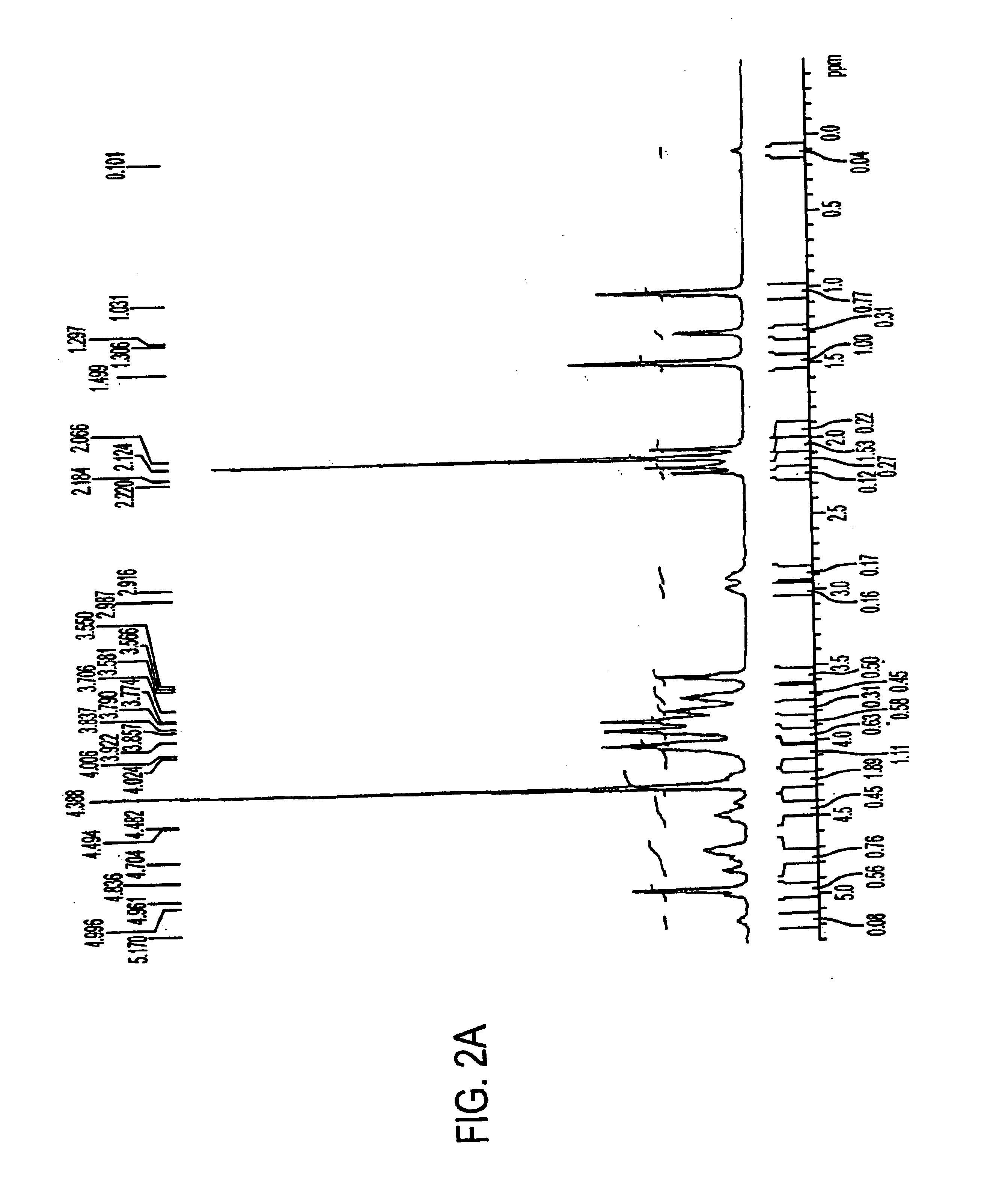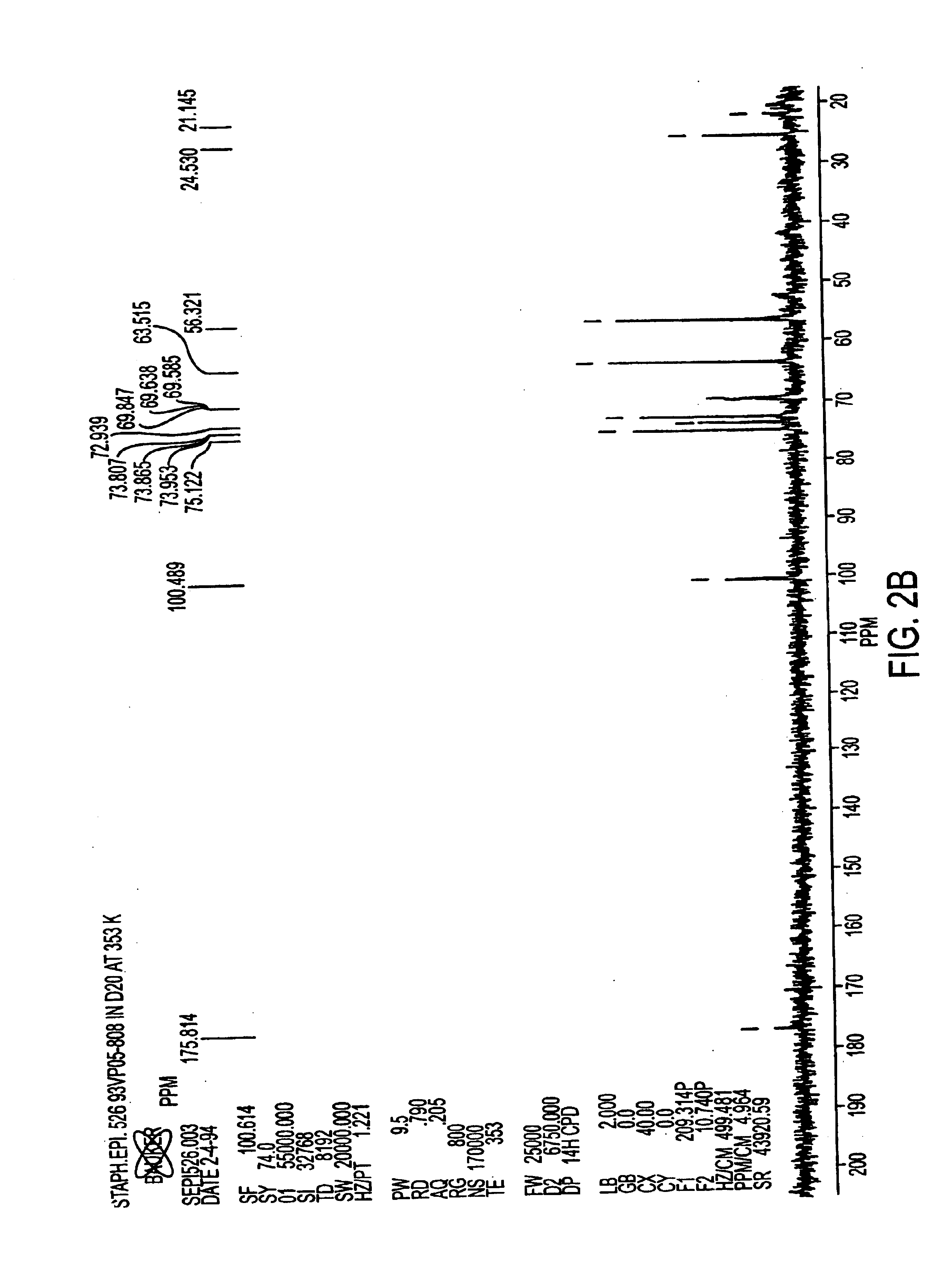Staphylococcus antigen and vaccine
a staphylococcus and antigen technology, applied in the field of new staphylococcus antigen, can solve the problems of severe limitation of the choice of therapy, and wound infections and infections associated with catheters and prosthetic devices
- Summary
- Abstract
- Description
- Claims
- Application Information
AI Technical Summary
Benefits of technology
Problems solved by technology
Method used
Image
Examples
example 1
Fermentation of Staphylococcus
[0065]ATCC 202176, a strain of S. epidermidis that carries the antigen, was fermented in a 50-liter fermentor in Columbia Broth supplemented with and 4% NaCl. The fermentation was started with one liter of a 16 hour old seed culture. Cells were fermented for 24 hours with low aeration (1 v.v.m.) and mild agitation (200 rpm) at 37° C. Following fermentation, cells were killed with 2% final concentration of phenol to ethanol (1:1) and then centrifuged to separate the cells from the supernatant.
[0066]Cells to be used as a vaccine to prepare whole cell antiserum were 3% formalin-fixed overnight at room temperature. Cells for purification of antigen were killed by adding phenol-ethanol (1:1, vol / vol) to the fermentor to a final concentration of 2%, and mixing slowly for 2 hours at 15-20° C. No viable cells were detected after this treatment. The cells then were harvested by centrifugation at 14,500×g and stored at −70° C. until use.
example 2
Preparation of Whole Cell Antiserum
[0067]Formalin-fixed cells from Example 1 were adjusted at OD54 0nm=1 and were injected intravenously into rabbits. No adjuvant was used. Rabbits were bled at weekly and positive whole cell serum was collected and pooled. IgG was purified from whole cell serum by a protein G affinity column.
example 3
Purification of Antigen
[0068]Antigen was extracted from cell paste. A suspension of the cell paste (0.5 g / ml) was treated for 4 hours at 37° C. with pronase (1 mg / g of cells) and then with lysostaphin (175 U / g of cells), DNase and RNase (0.1 mg / g of each) and then stored overnight at 4° C. The suspension was made 10% in trichloroacetic acid (TCA) and incubated for 4 hours at 60° C. After centrifugation, the supernatant was neutralized with 1M NaOH to pH 7.0, followed by sequential precipitation with 25-75% cold ethanol in the presence of 10 mM CaCl2. Nucleic acids and high molecular weight proteins were precipitated from neutralized supernatant by adjusting it to 25% ethanol and incubating at 4° C. for 4 hours. After centrifugation, the supernatant was adjusted to 75% ethanol and incubated at 4° C. for 4-12 hours to precipitate antigen-containing material.
[0069]The precipitate containing the crude antigen was dissolved in water and residual ethanol was removed by dialysis. The dialy...
PUM
| Property | Measurement | Unit |
|---|---|---|
| pH | aaaaa | aaaaa |
| pH | aaaaa | aaaaa |
| concentration | aaaaa | aaaaa |
Abstract
Description
Claims
Application Information
 Login to View More
Login to View More - R&D
- Intellectual Property
- Life Sciences
- Materials
- Tech Scout
- Unparalleled Data Quality
- Higher Quality Content
- 60% Fewer Hallucinations
Browse by: Latest US Patents, China's latest patents, Technical Efficacy Thesaurus, Application Domain, Technology Topic, Popular Technical Reports.
© 2025 PatSnap. All rights reserved.Legal|Privacy policy|Modern Slavery Act Transparency Statement|Sitemap|About US| Contact US: help@patsnap.com



